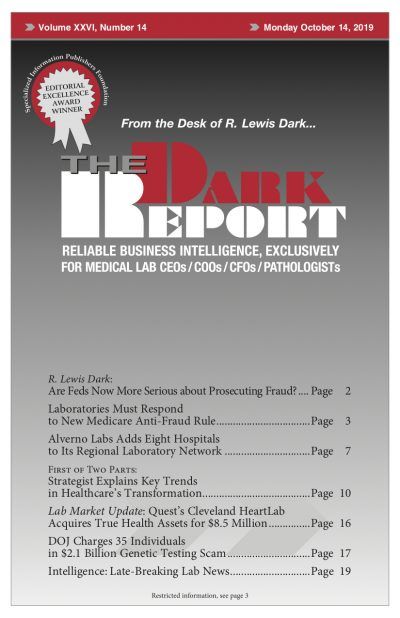CEO SUMMARY: Clinical labs and pathologists providing tests for patients in Medicare, Medicaid, or Children’s Health Insurance Program should become acquainted with new enrollment rules that go into effect Nov. 4. The new rules allow CMS to revoke or deny enrollment to help stop fraud before it occurs in the federal healthcare programs. CMS intends …
Labs Must Respond to New CMS Anti-Fraud Rule Read More »
To access this post, you must purchase The Dark Report.


